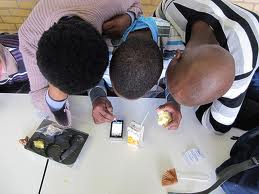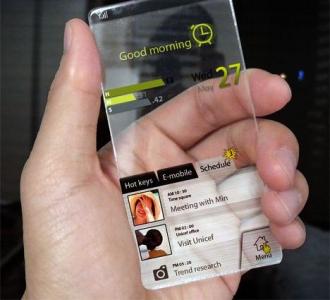-E-Learning means "electronic learning" — it refers to a wide range of applications and processes designed to deliver instruction through electronic means. Usually this means over the Web, however it also can include CD-ROM or video-conferencing through satellite transmission. The definition of E-learning is broader than, but includes, "online learning," "Web-based training," and "computer-based training." Most importantly, it signals the paradigm shift in education and training that is in progress. Read More Here
Read the " E-Learning Handbook" to find step by step guide for planning an elearning program
This article is about the ethics of using mobile technologies to deliver, enhance and support learning in developing regions of the world. The people exploring the possibilities of using mobile technologies in these ways are clearly good, nice people who are determined to do good, nice things. So, this should really be a short article.
However, earlier examples of education and technology deployment in developing countries suggest that this may not be as easy and clean as we are led to believe. Recent personal experiences suggest the using mobile tech to enhance learning is a complex and troubling topic, with a strongly counter-intuitive dimension where ethical concerns permeate both the means and the ends.
Read more
Not all that long ago, the term “mobile learning” implied laptop computers and mobile carts that were wheeled from classroom to classroom. Now, as a growing number of students carry smart phones, tablets, and other mobile devices that can connect to the internet wirelessly through a cellular as well as a Wi-Fi connection, the definition of “mobile learning” is expanding—and with it, the possibilities inherent in the term.The rise of mobile technologies small enough to carry in one’s pocket, and the increasing power and functionality of these devices, is causing a seismic shift in education technology.
Last fall, nearly 50 percent of middle and high school students said they carried some type of smart phone—a 47-percent increase from fall 2009, according to Project Tomorrow’s annual Speak Up survey of students, parents, teachers, and administrators on their uses and views of school technology. Read More
|




 RSS Feed
RSS Feed